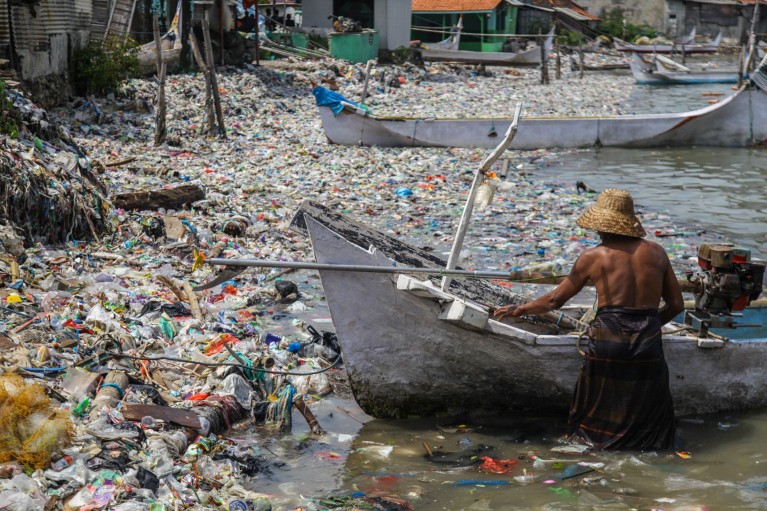2011 (1)
2016 (1035)
2017 (752)
2018 (978)
2019 (385)
2020 (175)
2021 (235)
2022 (101)
2023 (983)
2024 (800)
2025 (537)
2026 (2)

人类禁止将塑料袋用于食品的一个关键主题围绕着塑料垃圾所隐藏的微生物危害。正如2024年10月关于“塑圈”中有害微生物繁殖的评论所强调的——“塑圈”指的是在塑料表面形成的微生物群落——越来越多的人担忧塑料垃圾不仅是环境污染物,还是公共健康威胁。
塑料为病原病毒、抗生素耐药细菌和其他有害微生物提供了理想的生存表面。当塑料暴露在环境中,特别是在降解成微塑料的条件下,它们会吸引并滋生危险的病原体。这些微生物可以在生态系统中持续存在并传播,可能会污染食品和水源。因此,这引发了一个关键问题:塑料的使用,特别是在与食品直接接触时,可能会带来健康风险。
因此,禁止塑料袋用于食品可以被视为一种预防措施,以减少食品被病原微生物污染的风险。随着我们对塑料污染所带来的风险认识的加深,塑料的生物危害性质变得越来越明显,这进一步强调了转向更安全、更可持续替代品的紧迫性,以保护人类健康和环境。
H/t: What harmful microbes are lurking in the world’s 7 billion tonnes of plastic waste?
A fisher in Bangkalan, Indonesia, docks at a beach strewn with plastic waste. Credit: Suryanto Suryanto/Anadolu/Getty
-
What harmful microbes are lurking in the world’s 7 billion tonnes of plastic waste?
Pathogenic viruses and antibiotic-resistant bacteria thrive on plastic. The biohazard risks of this ‘plastisphere’ shouldn’t be overlooked in efforts to tackle the pollution crisis.
In June, more than 2,000 volunteers participated in the 2024 Global Ocean Cleanup campaign and netted nearly 40 tonnes of plastic debris from just some 80 kilometres of ocean and coasts across the world, including sites from Vietnam to California. Although representing one week’s hard work for the volunteers, such initiatives are a drop in the ocean of plastic waste that is generated each year — about 400 million tonnes, equivalent to the weight of all adult humans currently on Earth.



